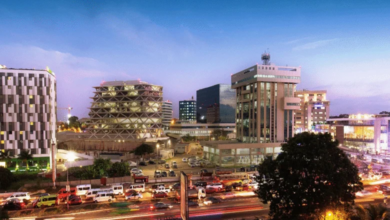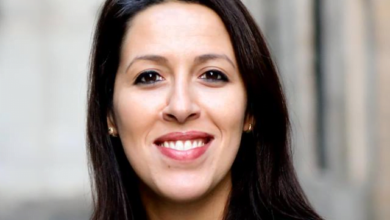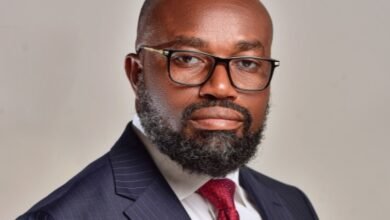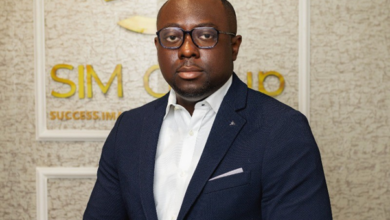Interview Onur Özçeri: « Turkey, a more pragmatic and faster partner”
As a recent player in official development assistance, Turkey is proposing an innovative partnership to Africa, argues Onur Özçeri, the Turkish ambassador to Benin. In this interview, the diplomat details his country’s strategy and priorities on the continent.
Interview by Viany Gbaguidi, in Cotonou
Since 2005, Turkey has joined the circle of official development assistance (ODA) donors, particularly for Africa. What is your strategy on the continent and how does it distinguish you from other donors?

Let me start by giving you a concrete example. Somalia has gone through a very difficult period in its recent history. It was almost down-and-out and was neglected by the international community for a long time before Turkey helped it to recover. We did not consider this country to be a failed state, to be abandoned to its own fate. Here we have a concrete example where Turkish public assistance, in all areas, has enabled the Somalis to regain some confidence in themselves, to stand up again and take their place in the international community. This is what differentiates us from other donors. Our approach is human. We are sensitive and compassionate, which often makes us more pragmatic and quicker to address certain situations. In fact, a large part of Turkish assistance is humanitarian, while at the same time having a number of infrastructure projects such as hospital construction, farms and many projects to support SMEs. It is a pragmatic and concrete mix.
Several African stakeholders are calling for innovation and transparency in ODA on the continent. How has Turkey’s strategy evolved to meet this expectation?
Through TIKA, which is the Turkish Cooperation and Coordination Agency, we listen to the needs. It is not in closed offices that we decide to do this or that, but rather events and crises lead us to react and to constantly readjust our approach. Our strategy is above all a pragmatic response to crises. We have flexible and dynamic teams. For example, here at the Turkish Embassy in Cotonou (Benin), we do not have a permanent representative of the TIKA but as an embassy, we have the possibility to submit projects to the TIKA, depending on the things we see, that we could do in the country, and that would be likely to have a direct impact on the populations.
« Our assistance is not conditional »

In fact, in the latest declaration adopted in Istanbul during the 3rd Africa-Turkey Partnership Summit (December 16-18, 2021), Turkey and its partners reaffirmed together to have a more effective cooperation, which better meets the expectations of the African side. Moreover, our assistance is not conditional. We realize that the Africa of 2022 is no longer the Africa of the past. The continent wants to be at the heart of what is happening, it wants to be listened to, to participate actively in decision-making, to freely make its way… From this point of view, we try to listen to our African partners, and we prepare projects together rather than trying to impose a certain way of doing things.
How much is Turkish public assistance in Africa today?
Turkish official development assistance for the entire African continent amounted to nearly $1 billion b etween 2015 and 2019. In Benin, where our embassy was opened in 2016, my estimate is that we have carried out projects corresponding to nearly $2.5 million, including the construction and supply of equipment for the Adjohoun Health Center (south of the country, 60 km from Cotonou, editor’s note), which is an annex of the area hospital in that locality.
What are your current priorities for the continent?
As mentioned earlier, we have just held the 3rd Africa-Turkey Partnership Summit. We have clearly put on the table what we intend to do together, and what has been retained in particular is a very concrete list of measures and projects, which covers all areas (security, agriculture, health, education, youth and women…) and concerns both the Turkish and African state authorities and the private sector.
« In our joint actions, the African side has the opportunity to share its concerns and preferences ».

It is also important to note that this set of actions to be implemented has been prepared with the African side, which has therefore had the opportunity to share its concerns and preferences. Since 2005, Africa and Turkey have gotten to know each other and I note that all parties are determined to work hand in hand. I hope that we will continue on this path.
What about the costs associated with the list of measures resulting from the summit?
On this point, an approach in terms of cost would be too simplistic, because it is not so much a package of measures related to specific infrastructures, for example, as a commitment to develop joint activities such as transfers of expertise, cooperation programs, etc. Consider the example of the special economic zones, which are being created all over the African continent. We must make them known to the Turkish private sector. Turkey’s role here is to take its African partners by the hand to be able to introduce them to the Turkish private sector and to say, this is a continent that is undergoing structural transformation, with many opportunities available to you. The same goes for Turkey, where there are projects and opportunities for Africans to seize.
What do you plan to do together, besides the current priorities?
There is certainly a lot to be done, whether in terms of infrastructure, politics, economics, culture… On the political level, Turkey is in favor of a permanent seat for African countries in the United Nations Security Council (currently composed of five permanent members – China, the United States, France, the United Kingdom and Russia – with the right of veto, editor’s note). As the Turkish President of the Republic said, the world is not limited to these five countries and as such, we want Africa to be better represented in global forums. Moreover, Turkey is co-chair of the Group of Friends of the Least Developed Countries (LDCs) at the United Nations headquarters in New York. We hope that the international community can keep in its priorities the fact that the LDCs succeed in the 2030 agenda (that of the Sustainable Development Goals) and the 2063 agenda (that of the African Union), which, in a way, is also a helping hand to the African cause internationally.
« We see great potential for development in economic and trade relations with Africa»
Finally, on the economic level, Turkey has many assets to share with Africa. We live in a world marked by globalization and our country can inspire many African companies in tourism, energy, infrastructure… There is therefore a great potential for development in economic and trade relations with the continent. We organize several economic forums in Turkey, which allows in particular to do a lot of B to B (business to business) and concrete things. For example, Africa needs to transform its agricultural raw materials; Turkey is very advanced on this point and can therefore offer a window of opportunity to African economic operators so that they can be inspired by what Turkey does, and buy the necessary machine tools. But beyond that, we also intervene in sports, culture… In short, we want Turkey and Africa to get to know and appreciate each other better.






